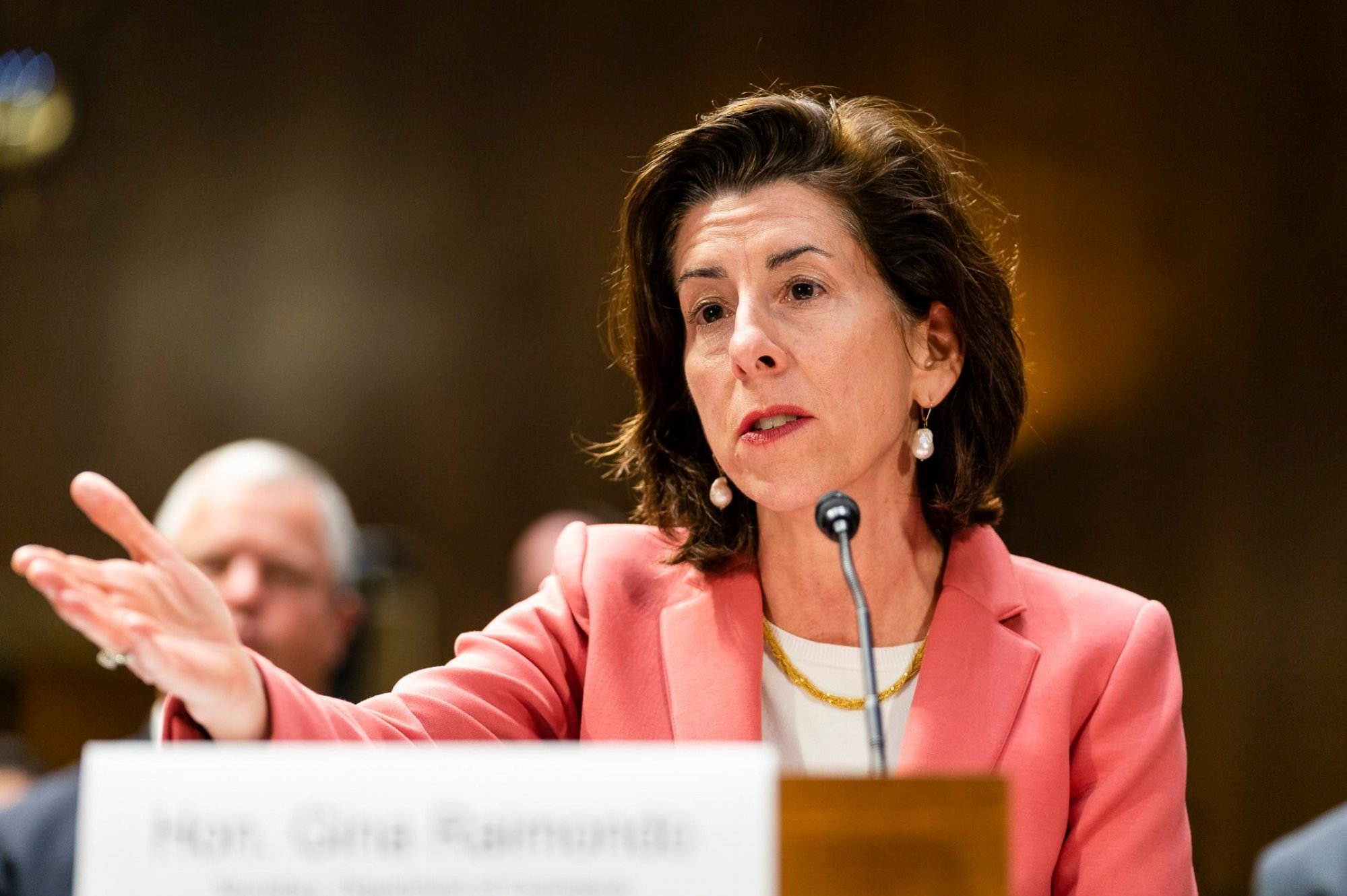China and the US have exchanged barbs over their differences on trade but have nevertheless agreed to step up communication to manage heightening conflicts after top trade officials from both sides met in Washington.
Chinese Commerce Minister Wang Wentao and his United States counterpart Gina Raimondo had “candid, professional and constructive” exchanges on bilateral trade relations and concerns, China’s commerce ministry said in a statement on Friday.
“China emphasised its concerns on the US’ China trade policy, semiconductor policy, export control and overseas investment scrutiny. Both sides agreed to set up communication channels to maintain and step up exchanges on concrete trade concerns and cooperation,” the Chinese side said.
Do you have questions about the biggest topics and trends from around the world? Get the answers with SCMP Knowledge, our new platform of curated content with explainers, FAQs, analyses and infographics brought to you by our award-winning team.
A statement issued by the US Department of Commerce said the discussions, which took place on Thursday US time, were “candid and substantive” and the two officials talked about “the overall environment in both countries for trade and investment and areas for potential cooperation”.
“Secretary Raimondo also raised concerns about the recent spate of PRC actions taken against US companies operating in the PRC,” the US statement said.
“This meeting was part of ongoing efforts to maintain open lines of communication and responsibly manage the relationship. Secretary Raimondo expressed her commitment to continuing to build on the engagement between President Biden and President Xi in Bali, Indonesia, in November 2022.”

The meeting – Wang’s first face-to-face talk with Raimondo since the latter took office in 2021 – came after Beijing banned semiconductors from the US-owned Micron in key infrastructure projects and US consultancy firms in China were subjected to national security raids. The US commerce department said the ban on Micron was not based on facts.
At Apec, top US official urges ‘worker-centric’ approach to trade policy
Wang’s trip to the US comes after Group of Seven leaders met in Hiroshima last week, at which the leaders from the wealthy G7 countries criticised China for “economic coercion” and said they would “de-risk” without “decoupling” from the world’s second-largest economy in everything from chips to minerals.
Beijing responded to the communique by saying the G7 countries should not abuse trade and investment restrictions.
“We hope that the G7 members will put into practice their statement that they are not seeking to ‘decouple’ from China, instead of saying that they are not seeking to ‘decouple’ while abusing trade and investment restrictions to suppress and curb China’s development,” said Shu Jueting, a spokeswoman with the Ministry of Commerce, at a media briefing on Thursday.
Beijing also expressed opposition to Washington’s move towards a new trade pact with Taiwan.
The China-US meeting and subsequent pledge for greater communication were positive moves, according to He Weiwen, a senior fellow with the Beijing-based think tank Centre for China and Globalisation.
“The most pressing issue for China and the United States is to establish a dialogue mechanism to clearly state their differences, and then discuss how to solve or ease them,” he said.
He said that such a dialogue mechanism should be restored to discuss not only commerce issues, but also culture, agriculture, energy management and technology for a vital signal by both Beijing and Washington to show their willingness to cooperate and manage differences.
US lawmaker demands action against Chinese chip firm CXMT after Micron
“This is in the interests of the companies of both countries.”
Wang, who is attending the Apec trade ministers meeting in Detroit this week, would meet the US Trade Representative, Katherine Tai, Shu said. Wang last met Tai in Thailand in November at an Apec meeting
The meetings will be a further attempt by the world’s top two economies to re-engage after stalemates as bilateral ties soured in recent years.
More from South China Morning Post:
- Tech war: China’s top server makers stop orders of memory modules containing Micron chips, sources say
- Timeline: how Micron went from China business partner to the target of a national cybersecurity probe
- Xi Jinping calls on Eurasian nations to boost ties with belt and road as Beijing seeks to expand influence
- China-Russia trade likely to have ‘plateaued’ even as leaders hail ‘unprecedented high level’ relations
- China urged to roll out ‘pragmatic, effective’ policies to stabilise trade and investment
For the latest news from the South China Morning Post download our mobile app. Copyright 2023.





